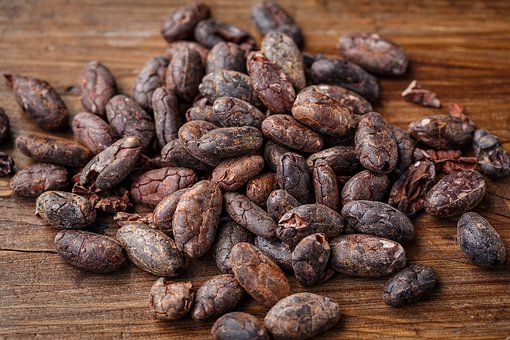Dark Chocolate in Moderation is Beneficial
© HealthyMuslim. See Terms and Conditions

Chocolate comes from the fruit pods of the cacao tree. These cocoa beans contain minerals like magnesium, calcium, iron and zinc, as well as vitamins and pantothenic acid. In fact, cocoa has more phenolic phytochemicals and a higher antioxidant capacity than any other food, including green and black tea, as shown by a 2003 study.
Chocolate is a rich source of the antioxidant theobromine, and research has found that this is more effective in stopping persistent coughs compared with codeine, a popular cough medicine.
Several studies have shown that adding chocolate to the diet lowers blood pressure, compared to people who do not eat chocolate. One study concluded that "evidence is mounting to support cardiovascular health benefits from the consumption of flavanol-rich cocoa". Other findings demonstrate that risk of blood clots, strokes and heart attacks is lessened in those people who regularly eat raw chocolate.
Raw chocolate is high in tryptophan. The human body uses tryptophan to help manufacture serotonin, a neurotransmitter that is thought to prevent depression, so chocolate could have uses as an antidepressant.
Look for dark chocolates with a high percentage (seventy percent) of cocoa, as these usually contain more antioxidants. Processing of cocoa can cause substantial losses in its benefits, so try to avoid sweetened and fermented forms of chocolate, especially white chocolate which isn't chocolate at all.
Remember that with all foods, moderation is the key.
References
- Fisher NDL, Hollenberg NK Flavanols for cardiovascular health: the science behind the sweetness Journal of Hypertension:Volume 23(8)August 2005 p 1453-1459
- Lee KW, Kim YJ, Lee HJ, Lee CY. Cocoa has more phenolic phytochemicals and a higher antioxidant capacity than teas and red wine. J Agric Food Chem. 2003 Dec 3;51(25):7292-5
- Buijsse B, Feskens EJ, Kok FJ, Kromhout D. Cocoa intake, blood pressure, and cardiovascular mortality: the Zutphen Elderly Study. Arch Intern Med. 2006; 166: 411-417.
- Engler MB et al. Flavonoid-rich dark chocolate improves endothelial function and increases plasma epicatechin concentrations in healthy adults. J Am Coll Nutr. 2004 Jun;23(3):197-204.
- Grassi D et al. Cocoa reduces blood pressure and insulin resistance and improves endothelium-dependent vasodilation in hypertensives. hypertension. 2005 Aug; 46(2):398-405.
- Grassi D et al. Short-term administration of dark chocolate is followed by a significant increase in insulin sensitivity and a decrease in blood pressure in healthy persons. Am I Clin Nutr. 2005 Mar;81(3):611-614.
- Taubert D, Berkels R, Roesen R, Klaus W. Chocolate and blood pressure in elderly individuals with isolated systolic hypertension. JAMA. 2003 Aug 27;290(8):1029-1030. Usmani OS et al.
- Theobromine inhibits sensory nerve activation and cough. FASEB J. 2005 Feb;19(2):231-233. Vlachopoulos C et al. Effect of dark chocolate on arterial function in healthy individuals. Am J Hypertens. 2005 Jun;18(6):785-791.
Link to this article: Show: HTML Link • Full Link • Short Link
Share or Bookmark this page: You will need to have an account with the selected service in order to post links or bookmark this page.





|
Related Articles:
- Dark Chocolate Is A Rich Source Of Antioxidants
- Dark Chocolate 'Can Cut the Risk of Heart Disease and Stroke'
- Health-Protective Benefits of Dark Chocolate
- Carob: A Nutritionally Superior Alternative to Chocolate
- Dark Chocolate in Moderation is Beneficial
- Healthy Snack Ideas
You must be registered and logged in to comment.
Most Popular
Latest Articles
Popular Subjects
Health, fitness and longevity
Based upon the principles of health
in the Qur'an and Prophetic Traditions.
HealthyMuslim.Com
There are two bounties in which
most people lose out: good health
and free time. Al-Bukhari.























